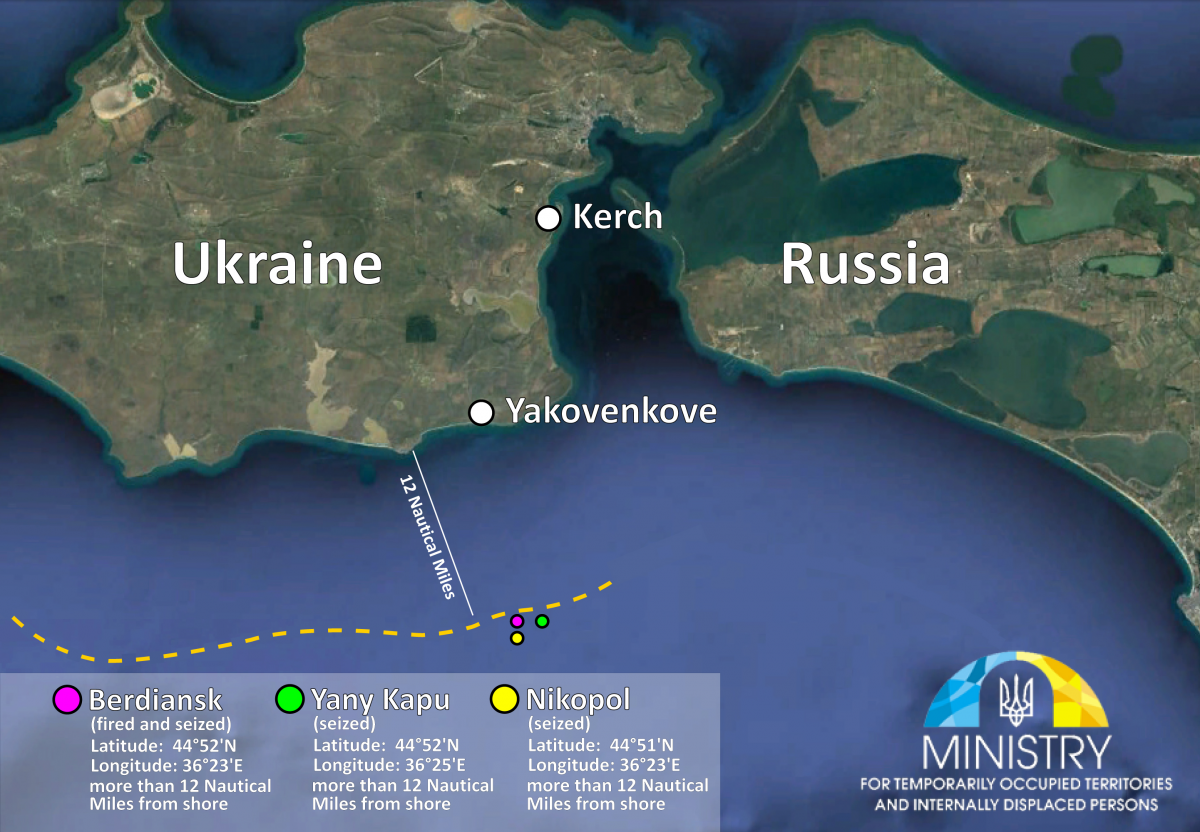
A new Disinformation review from the EU East StratCom Task Force notes that the main wave of disinformation narratives this week is connected to the attack on Ukrainian vessels near the Azov Sea.
According to a classification earlier introduced by Ben Nimmo, Russian propaganda largely relies on four tactics: to distort, distract, dismiss, and dismay, the report says.
The stories published by Russia Today have clear signs of distorting the facts as they state that "Ukrainian ships entered Russian waters in the Black Sea illegally" while in reality the bilateral treaty between Russia and Ukraine governs the use of the Kerch strait and the Sea of Azov, which is considered to be the “internal waters” of both Russia and Ukraine.
Russian media also suggested that Russia has labeled the incident a deliberate provocation by the Ukrainian authorities with an aim to create a diplomatic row that would lead to sanctions against Moscow being tightened. That is a bit peculiar, as the Ukrainian ships were moving "in accordance with the provisions of all effective multilateral and bilateral international treaties and navigation rules", according to Ukraine. And the UN Convention on the Law of the Sea (UNCLOS) states that "All ships, including foreign warships, enjoy the right of "innocent passage" within another state's territorial sea under international law."
The pro-Kremlin outlets have also been distracting the audience from the main issue – Russia shooting at Ukrainian boats and capturing the vessels and crews. Instead they target the president of Ukraine, Petro Poroshenko: "Washington incited Poroshenko to launch this "sea provocation" against Russia in order to "thwart the Putin -Trump meeting"" and "President of Ukraine Petro Poroshenko uses the Kerch provocation for a coup d'état". But in reality, the Ukrainian Parliament adopted a resolution scheduling the presidential elections for 31 March 2019.
Dismissing the critic has also found its place under the sun of Kremlin info-war. Claims were spread that the Russian ships have moved so far ahead “in their technological development" that they "do not use ramming as a tactic". This quote proves again how important it is to read the news – just see this video about ramming.

Talking about the fourth "D", the authors say that "dismay the audience is alive and kicking in pro-Kremlin media - there are numerous examples of disinformation messages about Ukraine known already since 2014 and they are still being used."
Russian disinformation does not only rely on its own resources to spread its narratives about Ukraine. Twitter has been used so heavily that Russia Today and Sputnik are scoring more engagement than some of the German quality media combined.
Between Sunday and Tuesday, more than 10,000 German-language Tweets from 3,000 unique accounts mentioned Ukraine, almost all of them relating to the confrontation in the Sea of Azov. Despite the large overall number of tweeters, a small group of 30 accounts has been driving a significant share of the debate so far.
Those 30 accounts have been identified as promoting pro-Russian and/or far-right views and are most probably automated to a large extent. The accounts target the German twitter sphere with a mix of tailored false information, for example Sputnik Deutschland's reports of Ukraine's alleged "massive artillery fire" on residential areas in Donbas (70.000 Twitter impressions) or the story of the alleged "confession" of captured Ukrainian soldiers (150.000 Twitter impressions).

